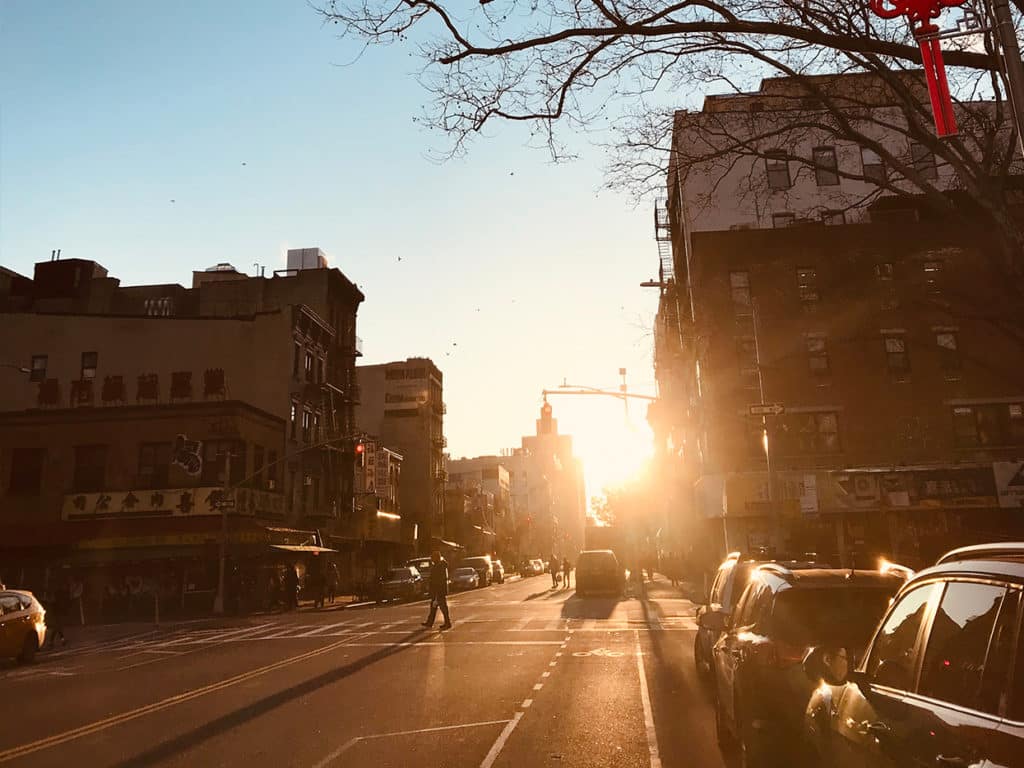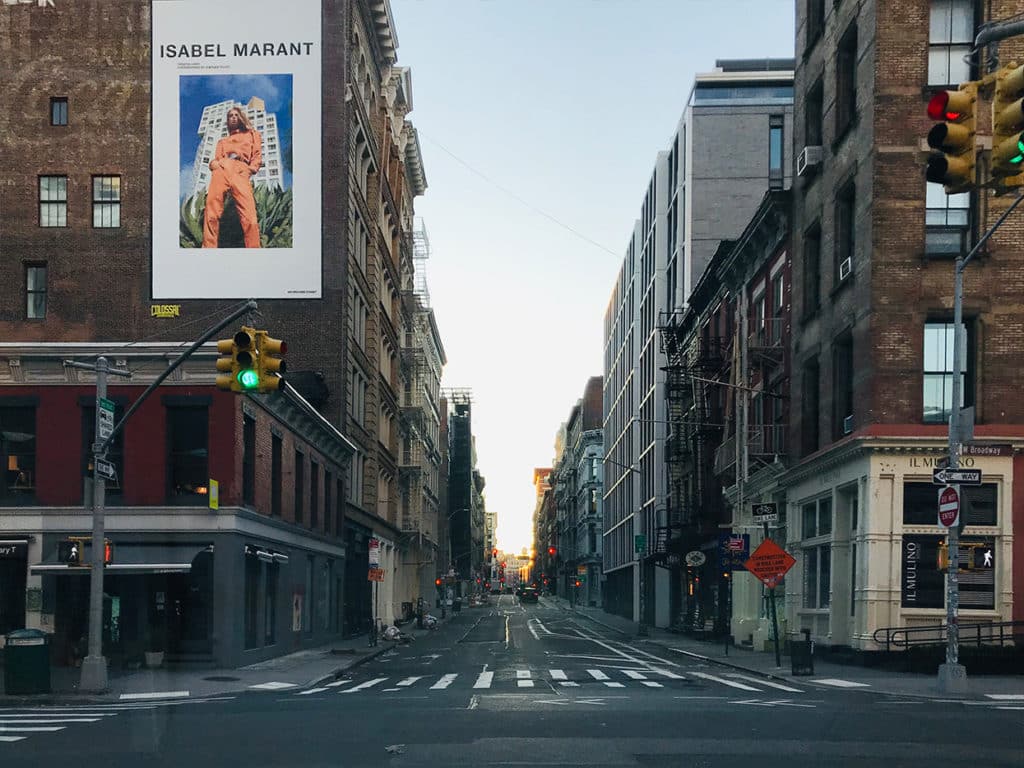As easily overlooked as it may be, walking does magic. Walking to and from work each day enlivens me. In the morning, I’d find golden light from a rising sun, reflecting off the skyscrapers on Park Avenue. In the evening, I’d spot purple-orange streaks of painted sunset along the horizon. Strolling through New York really opens my eyes to the details I may have missed, whizzing by the intricate city.
Living two blocks away from Times Square, I’d catch it empty at dawn. The advertisement screens are still flashing, but arguably the busiest part of the world is at rest. Having it all to myself for a little while is refreshing, like going on an airplane and finding that no one is sitting beside you. You have the space to yourself. With upbeat music and stimulating podcasts to accompany me, I feel like flying across midtown, without being weighed down by the gravity of expectation of the day.
After work, I sometimes walk to jazz jam sessions around the theatre district. The crowded streets give me the cocoon of anonymity to sing along the way. A day a week, I also walk with a friend from our office by Grand Central to NYU. Past the hanging lights in Madison Square Park and the farmers’ market tents in Union Square Park, we’d soak in the sights before our German Netflix class.
When I’m on foot, I’m not cramped in a subway, enclosed in a car, or trapped on a bicycle. The rhythm of walking is the one we evolved with and enables us to pick up information from our environment the easiest (In Praise of Walking). No wonder that our hunter-gatherer ancestors survived by ambling. We still feel alive doing it.
Furthermore, the same brain systems that support our internal GPS also uphold our memory and learning. It can get badly affected by stress and depression as well. Therefore, we also heal ourselves by walking.
***

Hardly is walking solely related to my current life. The memories embedded in the act of walking goes back as far as the stories of my family.
As a child, I used to stroll with my family every summer evening. As we lived on a university campus, we’d often ramble to my father’s laboratory so he could check on a few samples under his electronic microscope. On our way home, we’d pass by a public square also called Times Square, where there was a huge sun clock and my playmates were waiting.
As a teenager, my mother walked seventy minutes each way to and from school through paddy fields. It’d get quite dark on her way home, especially in the wintertime. There was no electricity in the village homes, let alone streetlights. She was particularly scared of hiding wolves and scattered tombs in the shade. As soon as she’d reach the adjacent village, she’d holler my grandparents to come over.
***
Now I can afford walking as a leisurely activity. In particular, I love to wander aimlessly. While I have a basic sense of where I am, I’d try to let my impulses dictate where to go next. Sometimes an urge arises to take a certain turn, to follow a foreign road, however wild it can seem. I’d follow it, admiring the new scene. Sometimes I’d get lost, but depending on the kind people around me and pleasant surprises that take place, I’d find my way again.
Roaming this way is freeing. Letting our instincts take control is something that we seldom do, overthinking almost everything. But our guts actually have more neurons than our brains (Gut). By giving up the urge to control, we let our internal compass decide. Perhaps it knows more than we think it does.
This spirit of letting go even applies to jazz. Having internalized the contours of the original tune, we could phrase the lyrics differently or find harmonious new notes. This happens spontaneously after enough practice, and when it does, we have made the songs our own.
***

These flashes of creativity as we saunter physically or metaphorically are unpredictable, like the infinite routes between two destinations. Each of us is one of a kind that calls for a unique set of epiphanies.
Yet there are simultaneously orders around us. God does not play dice with the universe, says Einstein. If there are precise patterns in the physical universe – such as sunrises and sunsets – is there also such choreographed play in the socio-economic sphere? Business cycles come back around every eight and half or so years and civilizations advance and retreat over about three hundred years.
The search for a method to determine the future of our specific investments continues, however. In a perfect market, asset prices even follow a random walk, like a drunkard walking through a park late at night. Similar to us — how do we retain our inscrutable individuality while being part of clear collective patterns?
I want to know, so I keep walking.


